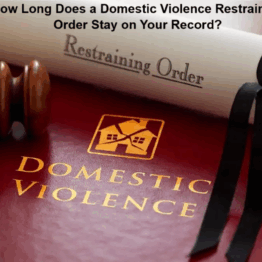
In 2015, the Nevada Legislature amended its laws to prohibit any person who is convicted of misdemeanor domestic violence, as defined by federal law, to “own or have in his or her possession or under his or her custody or control any firearm.” The federal definition of “domestic violence” is expansive:
[T]he terms ‘misdemeanor crime of domestic violence’ means an offense that . . .
(i) is a misdemeanor under Federal, State, or Tribal law; and
(ii) has, as an element, the use or attempted use of physical force, or the threatened use of a deadly weapon, committed by a current or former spouse, parent, or guardian of the victim, by a person with whom the victim shares a child in common, by a person who is cohabiting with or has cohabited with the victim as a spouse, parent, or guardian, or by a person similarly situated to a spouse, parent, or guardian of the victim.
Next, “possession” of a firearm “may be actual or constructive.” Constructive possession exists if the accused “maintains control or a right to control the contraband.”
For instance, possession may be imputed when the contraband is found in a location which is immediately and exclusively accessible to the accused and subject to her dominion and control. Even if the accused does not have exclusive control of the hiding place possession may be imputed if she has not abandoned the [contraband] and no other person has obtained possession.
Moreover, the accused is also “deemed to have the same possession as any person actually possessing the [contraband] pursuant to her direction or permission where she retains the right to exercise dominion or control over the property.”
Next, “firearm” is defined by Nevada law to “include any firearm that is loaded or unloaded and operable or inoperable.” Nevada’s domestic violence laws afford zero leniency for accused defendants with no criminal history or defendants implicated in cases that involve nominal or questionable injury. In fact, the Nevada Supreme Court has held that the simple act of spitting on a domestic partner constitutes domestic violence.
It has long been established, both in tort and criminal law, that ‘the least touching’ may constitute battery. In other words, force against the person is enough, it need not be violent or severe, it need not cause bodily harm or even pain, and it need not leave any mark.
The Nevada Supreme Court expressly held:
[i]n conclusion, the language and meaning of NRS 200.481 is clear; at a minimum, battery is the intentional and unwanted exertion of force upon another, however slight. Because the record clearly demonstrates that Hobbs intentionally spat on McClain and because spitting on another amounts to the use of force or violence as contemplated by NRS 200.481, we conclude that Hobbs was properly convicted of domestic battery pursuant to NRS 200.485.
Finally, a person who violates Nevada’s domestic violence-gun possession law “is guilty of a category B felony.” The individual faces a prison sentence of “a minimum term of not less than 1 year and a maximum term of not more than 6 years and maybe further punished by a fine of not more than $5,000.”
So……what does this mean to you……
It means if you have previously been convicted of misdemeanor domestic violence for simply spitting on a man/woman you had sex with one time, and you have no prior criminal record, and your current roommate owns an inoperable 1775 Revolutionary War Muscat hanging above the living room fireplace, you are facing a felony conviction involving 1 to 6 years in prison and a fine up to $5,000. Last and worst of all, your right to own a firearm is forever placed in jeopardy. “[T]his right is not subject to restoration by any means.”
If you have any questions about firearms and domestic violence convictions hiring Domestic Violence Lawyers Las Vegas is a wise move. Please call a domestic violence lawyer here at Domestic Violence Lawyers of Las Vegas for a free and confidential consultation.






